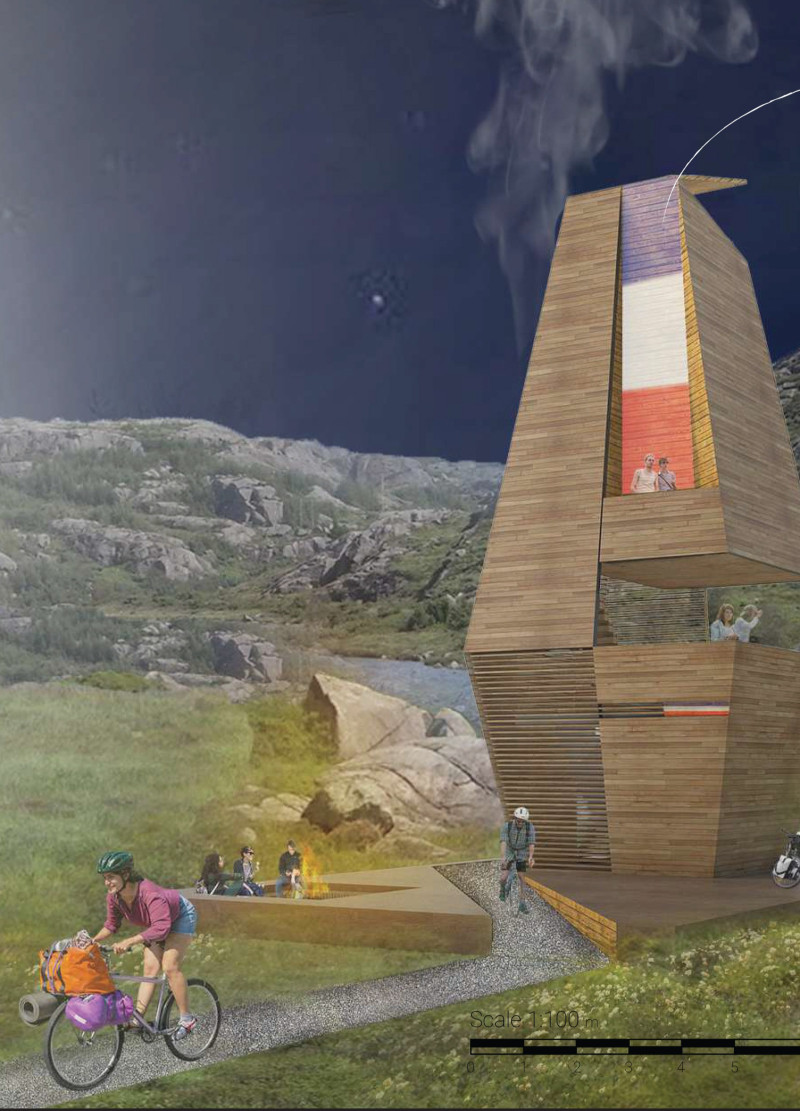5 key facts about this project
The BIKTA design provides a functional rest area along the EuroVelo 6 cycling route, emphasizing a strong connection to nature while encouraging users to take a break from their journey. It is designed with cyclists and nature lovers in mind. The structure integrates well into its environment and offers places for relaxation and observation. The design is rooted in minimalism, sustainability, and references to local architecture.
Design Concept
The structure is based on three main principles: Footprint, Function, and Landmark. The minimal footprint is achieved through a vertical form, which reduces environmental impact and helps the building blend into its surroundings. This careful approach ensures that the rest area supports the landscape rather than dominating it.
Spatial Organization
Inside, the BIKTA is divided into three areas, each serving multiple functions. These distinct spaces allow for activities such as bike repairs, resting, and social interactions. This flexible organization meets the varying needs of users along the cycling route, enhancing their overall experience as they travel.
Materiality
Wood is the primary material used for the BIKTA. This choice highlights local resources and aids in the ease of assembly. The segments of the structure can be transported and put together with minimal site disturbance. This material choice aligns well with sustainable practices and respects the surrounding ecosystem.
Sustainable Features
The design incorporates features that enhance energy efficiency, such as the use of natural light and fresh air. Thoughtfully placed windows improve the interior environment while reducing the need for artificial lighting. A central fireplace is included for heating and cooking, contributing to a self-sustaining design that reduces energy use.
The BIKTA's angled form reflects local architectural traditions while also presenting a modern take on regional design. The structure stands as a unique point along the EuroVelo 6, inviting users to pause and connect with the space around them.



























